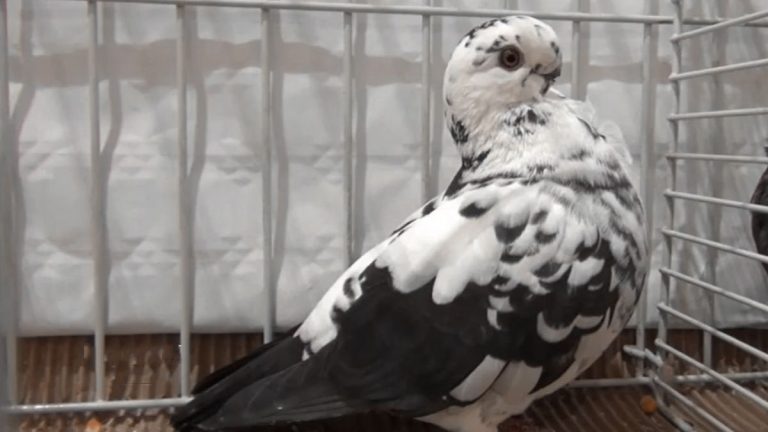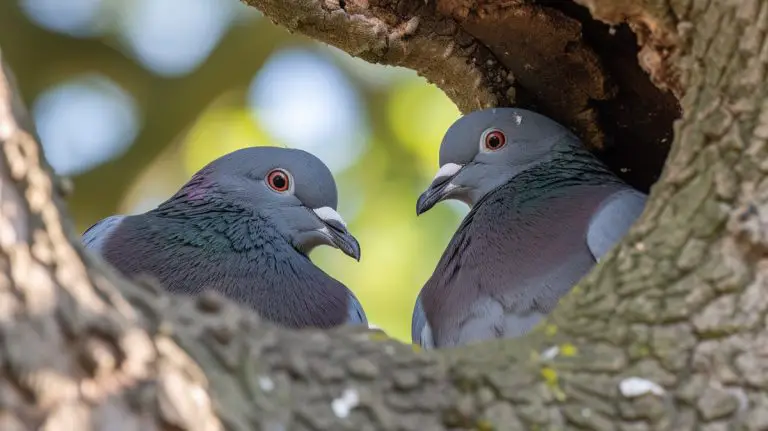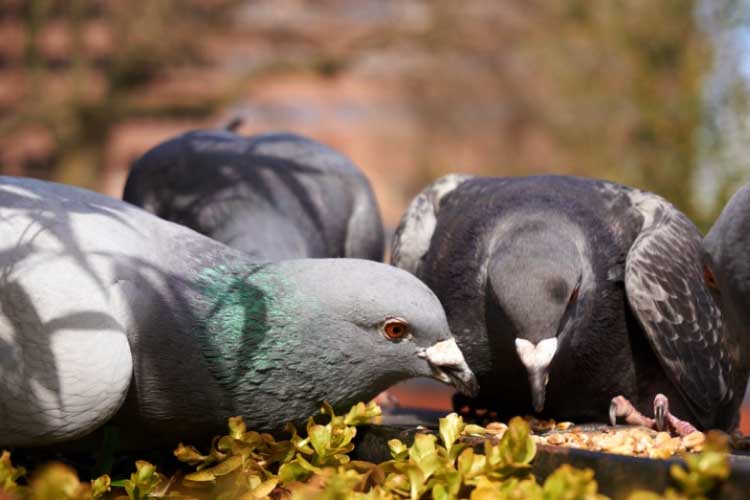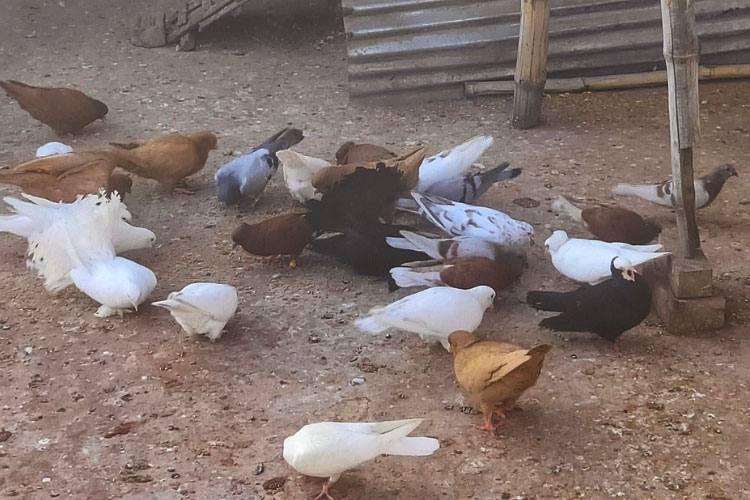Do Pigeons Eat Other Birds’ Eggs? What You Should Know
A pigeon’s diet is mainly made of seeds, fruits, vegetables, worms and small insects. Pet pigeons have a broader diet that may include fries, hamburgers and even pizza.
Do pigeons eat other birds’ eggs? Yes, pigeons eat other birds’ eggs. However, they only eat the eggs in specific situations, such as when no food is available. Though eggs are rich in nutrients and provide numerous health benefits, pigeons should eat them in moderation.
Before you feed your pigeon, read on to learn more about the benefits of eggs, how to prepare them and how much your bird should consume.
Can You Feed Other Bird’s Eggs To Pigeons?
Yes, you can feed eggs to pigeons. Your pigeon can eat other bird’s eggs since its wild counterparts also steal and eat them. They are a great source of nutrients and minerals, making them an excellent treat for your bird. However, eggs should be an occasional snack for your pigeon, not a daily meal.
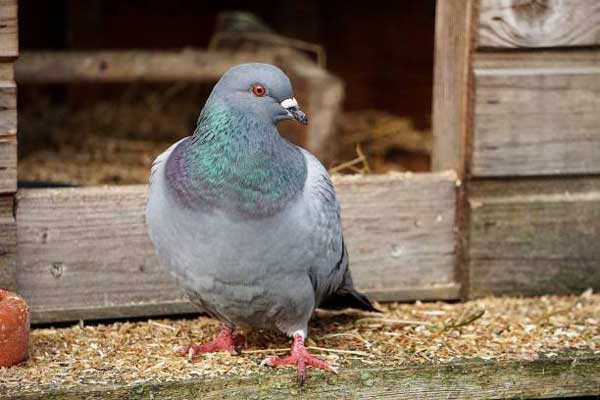
According to USDA, 100g serving of eggs contains the following minerals and nutrients;
- Carbohydrates – 1 g
- Energy – 145 calories
- Vitamin A – 126 mcg
- Vitamin B2 – 0.5 mg
- Folate – 47 mcg
- Pantothenic acid – 1.4 mg
- Choline – 285 mg
- Biotin – 20 mcg
- Phosphorous – 179 mg
- Selenium – 23 mcg
- Calcium – 49 mg
- Magnesium – 10 mg
- Potassium – 130 mg
- Iodine – 23 mcg
- Fat – 10 g
- Protein – 14 g
How do these nutritional facts in eggs help pigeons in their health?
Folic acid: Eggs provide a lot of protein and folic acid, which play a crucial role in growth. Folic acid facilitates the formation of RNA and DNA, both essential for cell multiplication and normal growth.
Proteins: Proteins play a central role in growth and development since they are used to grow cells, feathers and other tissues. Every cell in a bird’s body depends on proteins to function properly.
Choline, which eggs provide in plenty, is used to form acetylcholine, an important neurotransmitter. Since acetylcholine helps transmit nerve impulses, your pigeon will have optimal brain health. Choline also helps in the metabolism of fats and the formation of cell membranes.
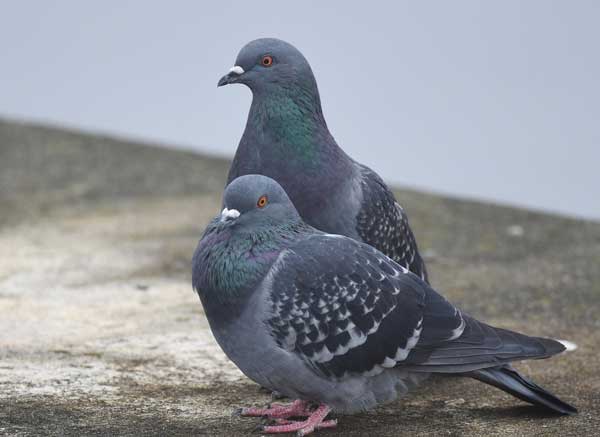
Calcium: Accordingly, pigeons need the calcium provided by eggs to form and maintain strong skeletal bones. Egg-laying pigeons also need a lot of calcium to help form egg shells. Calcium also plays a role in maintaining cardiac health and regulating electrolyte balance.
Low in carbohydrates: Eggs have protein content but are low in carbohydrates, so your pet pigeon can eat to its fill without consuming too many calories. Hence, you can treat the pigeon to a nutritious snack without worrying about obesity.
Since eggs contain a high amount of fat, giving your bird too many eggs is not wise. Besides, consuming too much phosphorous can cause a reduction in calcium absorption, leading to weakened bones. Hence, eggs should only be a treat to supplement the pigeon’s seed diet.
Do Pigeons Like Eating Other Birds’ Eggs?
No. Pigeons don’t like eating other birds’ eggs, so they don’t go around trying to steal and eat them. If your pigeons are well-fed and satisfied, they may never eat eggs.
However, wild pigeons or those living in harsh conditions may be forced to steal and eat eggs. When a pigeon has no access to food and is starving, it will resort to eating any eggs it comes across.
Health Benefits For Pigeons Eating Eggs
The nutrients provided by eggs have several benefits. For example, proteins help repair tissues and muscles, facilitate the growth of feathers, and accelerate the healing of wounds.
Similarly, proteins also play a crucial role in immune response and are used to make blood cells. And Carbohydrates provide energy, while fats help build cell membranes.
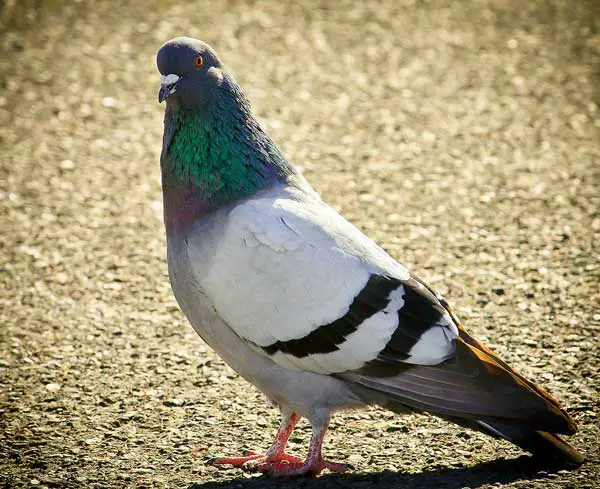
Likewise, the table below shows the overall benefits of the nutrient value an egg contains for pigeons.
| Nutrient | Benefits |
| Calcium | Calcium helps form strong bones and eggshells. It also promotes normal nervous system function and helps regulate the heart’s rhythm |
| Magnesium | Magnesium boosts a pigeon’s immunity, facilitates calcium absorption and regulates metabolism. It also plays a key role in blood pressure regulation. |
| Vitamin B5 | Vitamin B5 helps break down carbohydrates and fats. |
| Potassium | Potassium helps maintain electrolyte balance, facilitates muscle contractions and helps the nervous system. |
| Selenium | Selenium plays a key role in reproductive health by boosting the production of eggs, increasing hatchability and the quality of semen. Egg-laying pigeons require adequate selenium in their diet. |
| Choline | Helps build cells and maintain their structure. Choline also facilitates the metabolism of fats and is used to make acetylcholine. |
| Phosphorous | Phosphorous helps form strong bones and egg shells. It also plays a role in muscle function and is used to synthesize nucleic acids in cells. |
| Folate | Folate is crucial for growth since it helps make DNA and RNA. It’s also essential to your bird’s mental and emotional well-being. |
| Iodine | Iodine ensures your bird’s thyroid gland functions normally and produces thyroid hormones. |
How Do You Prepare Eggs For Pigeons?
Pigeons can eat fresh or cooked eggs as well as egg shells. In this regard, you can take note of this process.
- You can feed your pigeon a fresh egg without cooking, but you must wash the egg. Washing removes contaminants and other dirt that may sicken your bird.
- You can also cook eggs for your pigeon. The preferred cooked eggs for birds are boiled eggs since you don’t need to use fat or oil when cooking. You can either soft-boil or hard-boil the egg before feeding it to your bird. Do not add any salt or flavoring.
- Don’t use oil or fat if you want to scramble eggs for your pigeon.
- Also, don’t add any salt or spices to the eggs.
- After cooking, wait for the eggs to cool before feeding your bird.
- Another way to give eggs to pigeons is by crushing the shells. To prepare crushed egg shells, first clean the eggs. Next, remove the shells from the egg and grind them into a fine powder. You can feed the bird with only crushed shells or mix them with other bird food like grains.
How Many Eggs Should Pigeons Eat?
100g of eggs contain about 10 g of fat. This high amount of fat can cause rapid weight gain if you feed your pigeon with eggs regularly. Hence, you shouldn’t feed your bird more than one egg per week.
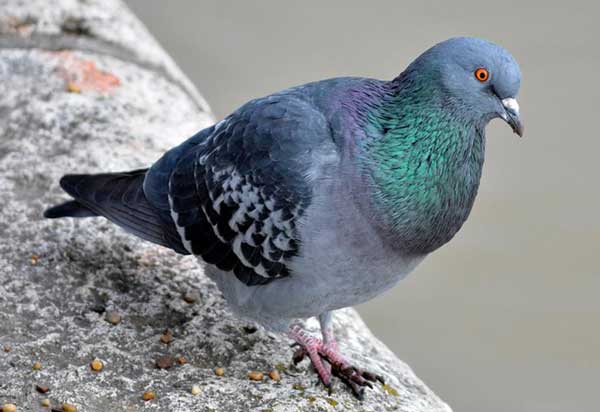
Can You Feed Eggs To Baby Pigeons? How?
Yes, you can feed eggs to baby pigeons. Break the eggs for the baby pigeons because they may be unable to break eggshells if you feed them raw eggs. If you decide to boil the egg, remove the shell and slice it into small pieces before giving it to the birds.
Pigeons are fascinating birds that have unique feeding habits. If you’re interested in learning more about what they eat, you might find our articles on whether pigeons eat grass and if pigeons eat corn informative. Our article on whether pigeons eat grass explores the nutritional benefits of grass for pigeons and whether it’s a good addition to their diet. On the other hand, our article on if pigeons eat corn discusses the suitability of corn as a food option for pigeons and whether it provides them with the necessary nutrients. Understanding what pigeons eat can help you provide them with a balanced and healthy diet.FAQs
Here are some answers to some frequently asked questions about pigeons eating other birds’ eggs.
Yes, pigeons can eat chicken eggs since they provide nutrients like other bird eggs. You can also crush chicken egg shells and feed them to the pigeon to provide extra calcium.
No. Though pigeons can eat snake and reptile eggs, they don’t usually eat them. Since pigeons are prey to snakes, they never want to get anywhere close to them or their eggs.
Conclusion
So, do pigeons eat other birds’ eggs? Yes, but only in particular circumstances. For example, a pigeon will steal and eat eggs if other foods are unavailable. Hence, you can feed your pet pigeon with eggs as well.
Eggs provide several nutrients that are beneficial to pigeons. They are a rich source of calcium which is great for egg-laying birds. Eggs also provide choline, which helps keep the bird’s brain sharp. However, despite the many benefits of eggs, you shouldn’t feed your pigeon more than one egg per week.

